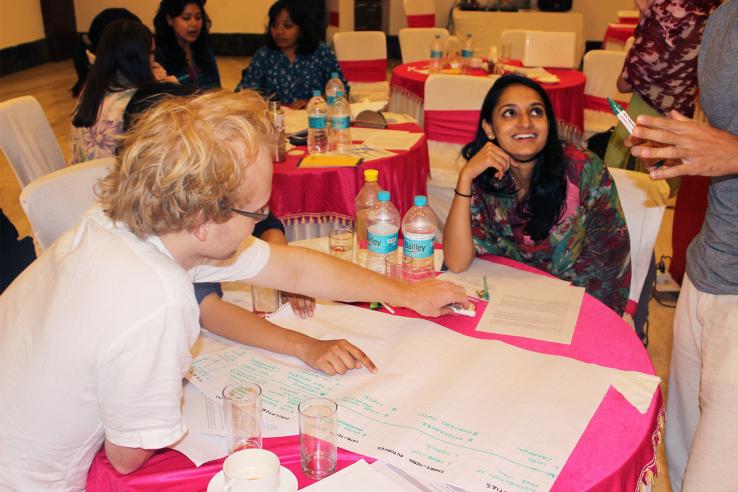J-PAL Executive Education: Evaluating Social Programs, South Asia 2018

Course Objectives
This five-day in-person training gives participants a thorough understanding of why and when researchers and policymakers might choose to conduct randomized evaluations and how randomized evaluations are designed in real-world settings. The course covers basic concepts related to measuring impact through randomized evaluations and discusses technical design choices as well as pragmatic considerations when conducting a randomized evaluation. It reviews the benefits and methods of randomization, how to choose an appropriate sample size, and common threats and pitfalls to the validity of an experiment. It also covers the importance of a needs assessment and a theory of change, and how to measure outcomes effectively—tools that are critical for all program evaluations.
Course Focus
The following key questions and concepts are covered:
- What is an evaluation?
- Why and when is a rigorous evaluation of social impact needed?
- The common pitfalls of evaluations and how randomization helps avoid them.
- The key components of a good randomized evaluation design.
- Alternative techniques for incorporating randomization into project design.
- How do you determine the appropriate sample size, measure outcomes, and manage data?
- Guarding against threats that may undermine the integrity of the results.
- Techniques for the analysis and interpretation of results.
- How to maximize policy impact and test external validity.
- Understanding and using the Theory of Change framework.
Target Audience
The course is designed for directors, managers, officers, researchers from governments, NGOs/nonprofits, international development organizations, foundations, as well as trained economists looking to retool.
Former participants say:
“The Executive Education course by J-PAL/CLEAR South Asia systematically deconstructs and demystifies this field so effectively that by the end of the program, I was able to apply the complex principles to a real world problem and present the design to a larger audience. The course structure with its optimal blend of theory and practice caters to the entire spectrum of participants, agnostic of their prior knowledge...the biggest benefit of the course was that I developed the ability to ask the right questions when designing, comparing or implementing impact evaluation models.”
Key Information
Dates: 16 – 20 July 2018
Location: Vivanta by Taj Ambassador, New Delhi, India
Contact: Gargi Saripalli, [email protected]
Submit the application form by May 27, 2018 to express interest in participating. For further information, see a sample agenda from the 2017 edition of this course or view the Evaluating Social Programs course description page.
The course fees vary by organization type and include the five-day training with lunch, tea and coffee as well as all course materials.